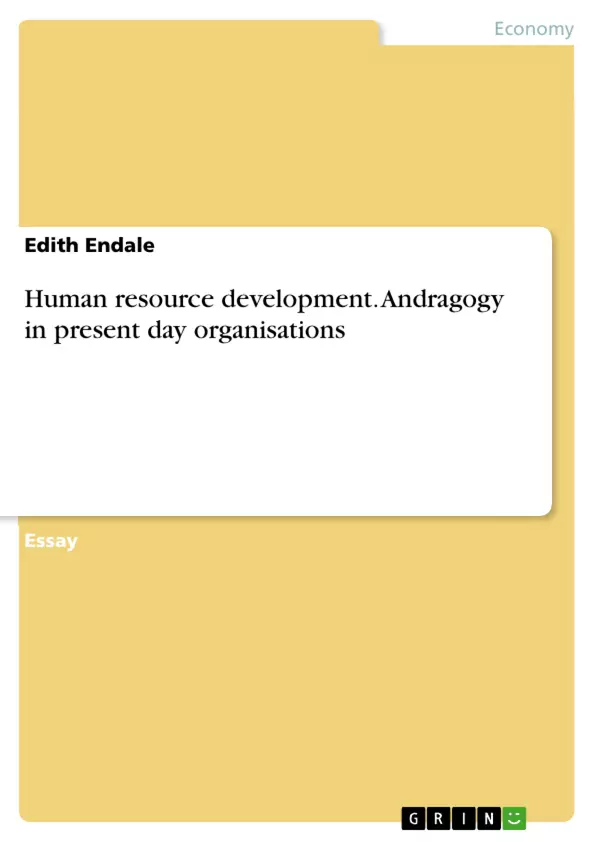The level of technological advancements and global growth experienced by organisations in recent years have come along with challenges that organisations have to face if they must be successful and survive in the world‘s most dynamic and turbulent business environment. To be able to cope in such an environment, organisations are looking forward to upgrade the skills, knowledge, experiences and competences of their employees through learning and development to complement the changes that are constantly being introduced into the organisation as result of external forces from the outside and business world.
Learning instituted by change is a very crucial issue nowadays as far as organisational success is concerned. It is so central to organisational success and performance that no organisation can choose whether to educate or develop its employees. An organisation’s human resources are its most dynamic assets as a result; staff learning and development should be the first priority in every organisation as no organisation can do without it.
Managing and accommodating change whenever it occurs is a skill that can not be ignored as change does not occur in isolation; it is always accompanied by more or new responsibilities. Thus, for employees to be effective in handling their new responsibilities brought about by change, it is very vital for those employees to be educated in a way that would suit their objectives, needs, interests and levels.
This paper analyses a brief case study of a learning and development intervention of justices’ clerks and demonstrates critically how the theory of Andragogy, Adult learning, was applicable during the programme and how it accounts for the success recorded at the end of the learning and development intervention.
Inhaltsverzeichnis (Table of Contents)
- Introduction
- Theoretical discussion
- Learning as a Concept
- Andragogy
- Assumptions of Andragogy
- Role of the Facilitator
- Criticisms of Andragogy
- Presentation of Case Study
Zielsetzung und Themenschwerpunkte (Objectives and Key Themes)
This paper aims to analyze a case study of a learning and development intervention for justices' clerks and demonstrate how the theory of Andragogy, adult learning, was applied in the program and contributed to its success.
- The importance of learning and development in organizations
- The application of adult learning principles (Andragogy)
- The challenges of managing change in organizations
- The role of learning and development in addressing these challenges
- A specific case study demonstrating the application of Andragogy
Zusammenfassung der Kapitel (Chapter Summaries)
- Introduction: This chapter introduces the importance of learning and development in today's dynamic business environment, emphasizing the need for organizations to adapt to change and invest in their human resources.
- Theoretical discussion: This chapter provides a comprehensive overview of the theory of Andragogy, outlining its key assumptions and principles. It also discusses the role of the facilitator and explores criticisms of the theory.
- Presentation of Case Study: This chapter delves into a specific case study, examining the learning and development intervention for justices' clerks and exploring how Andragogy was implemented within the program.
Schlüsselwörter (Keywords)
The primary keywords and focus topics of this text include Human Resource Development, Andragogy, Adult Learning, Case Study, Magistrates' Clerks, Learning and Development Intervention, Organizational Change, and Organizational Success.
- Quote paper
- Edith Endale (Author), 2017, Human resource development. Andragogy in present day organisations, Munich, GRIN Verlag, https://www.grin.com/document/415799



